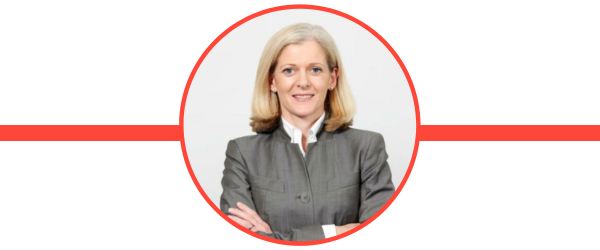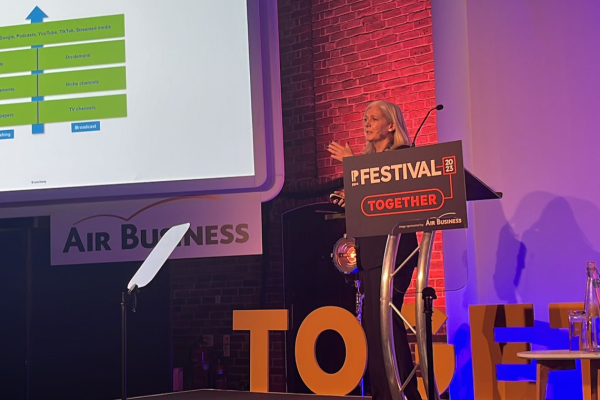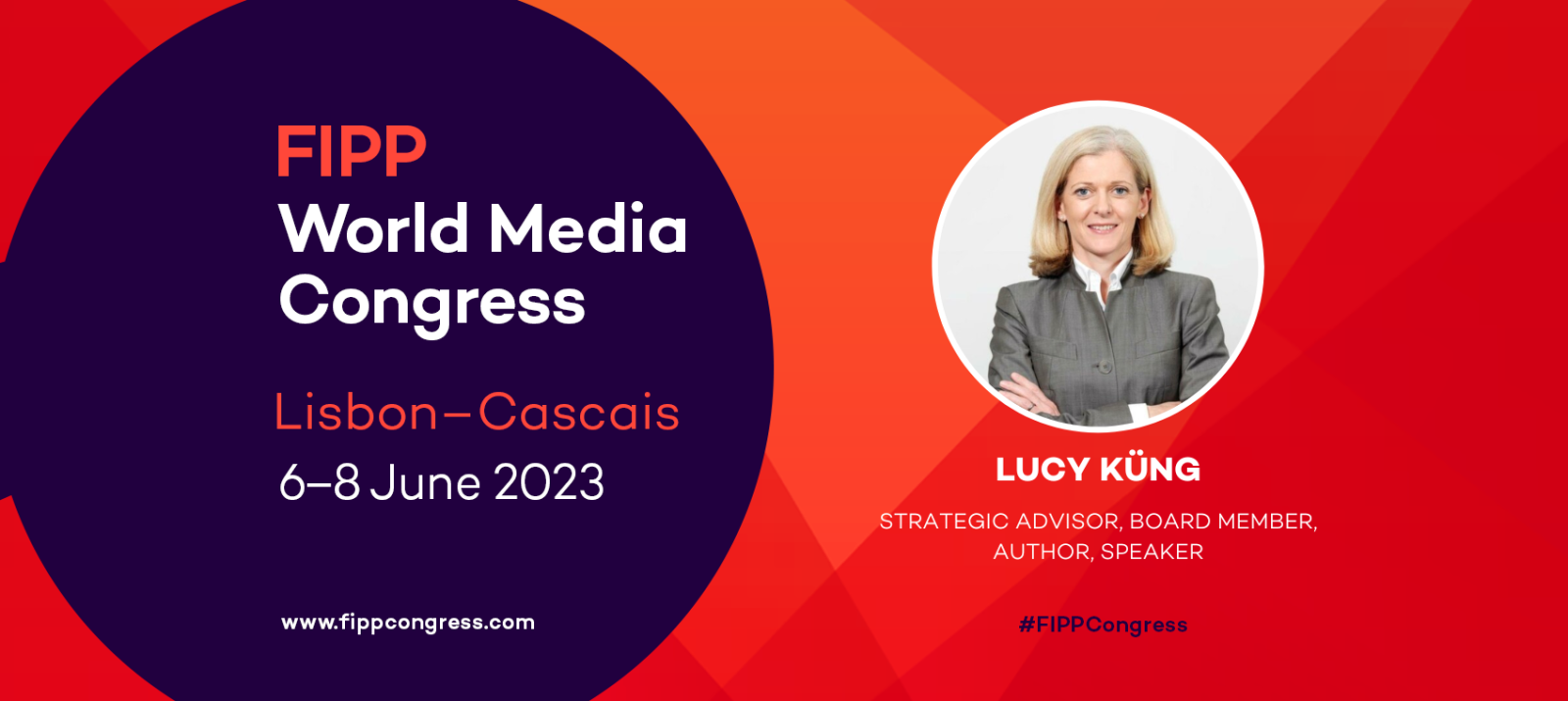A guide to digital transformation: Lucy Küng talks about models for managing organisational change
As digital disruption continues to reinvent publishing’s future, media companies need to make good use of its two greatest strengths – its powerful brands and the calibre of the people who work in the industry. This was the message from Lucy Küng, Senior Visiting Research Fellow, Reuters Institute, as she delivered her keynote speech as this year’s Professional Publishers Association (PPA) Festival in London.

“We are basically having our strategic agendas shaped by some of the largest players on the planet (like Amazon Prime and Apple) who are not really primarily very interested in the media industry, they’re interested in what media content can do for them,” she said, highlighting the core shifts leaders need to implement inside their organisations to master ongoing digital transformation.
“What that means is it’s really important that the strategic cards we have in our hands, we play very, very cleverly. And I would argue, there are two big cards the media industry have: the strength of the brands – this kind of visceral relationship between great media brands and their consumers – and also the calibre of the people in the media industry.
“Any other sector would kill for the group of people who work in the media. They are very committed and super intelligent.”
The importance of leadership
According to research carried out by Küng the real challenge when it comes to digital transformation is not designing the strategy but landing the strategy and getting people to truly understand it. To achieve this, good leadership is absolutely key.
“One big challenge is just how complex the role at the top has become,” said Küng. “You need to be a really smart strategist to navigate a way through for your organisation in this really difficult environment it has landed itself in.
“You need to understand where technologies are going and the challenges around negotiating a response to ChatGPT is massive. And you also need to understand how to transform your organisation.
“Very few individuals can do all three, which means your top team becomes absolutely central. They need to work together in a way they’ve never really needed to work together. And if you look at one of the big factors that separates the really strong players from the also rans, it’s the energy they’ve put into getting that top team right: have we got the right people in those roles and, really critically, are they all on the same page?”
The best leaders have “high thinking and low ego,” according to Küng. “You need a lot of IQ to ensure the media industry can continue to do what it’s always had to do in a really challenging environment.
“But that just gets you into the game. The leaders who are really transforming have very high EQ, emotional quotient. They’re very highly evolved as individuals. They know their strengths, they know their weaknesses, they know where they work well, they know where they don’t work well.”
Getting to know Gen Y and Z
One of the biggest things occupying the minds of those drawing up strategies at media organisations is finding the best way to manage Generation Y and Z and understanding what it is that makes these groups tick.
Delving into the characteristics of Gen Y and Z, Küng said these generations are “cohorts with tremendously strong personal values”.
“It’s very important their own values and the values their organisation are in harmony and if they’re not, they’ll jump in favour their own personal values.
“Secondly, they’re on an amazing kind of self-actualisation drive. These are groups that wants to learn to grow, to develop and are hungry for opportunities, to expand themselves, expand their horizons and are in a permanent skill acquisition mode. And this is clearly the key to motivating these groups, keeping them engaged and providing lots and lots of opportunities for growth and development.”
It is important for employers to understand the financial situation many of those who make up Gen Y and Z find themselves in.
“In some countries, not all, they are really financially very insecure, insecure in a way that people at the top of the organisation don’t really understand,” said Küng. “A lot of these individuals have graduated with student debt. They’re living in capital cities where it’s really hard to find housing, where they know they’ll never be able to afford to buy a property.
“It matters because they feel they’re making quite a sacrifice to work in this industry because they care about it, because they care for the values of it. And, therefore, they’re looking for something back. So somehow the psychological contract has changed with these individuals. They’re looking for more. They’re looking for something that’s more meaningful.”
Küng added that Gen Y and Z want very high levels of feedback on an ongoing basis – something they are used to on social networks. “This is problematic not because they’re leaders don’t want to give them feedback, but because often their leaders haven’t got the time to give feedback and workloads have increased.
“And often their leaders don’t have any capacity to give any kind of compensation if someone’s done a really good job. So, there’s this kind of uncomfortableness on the part of the leaders, which may mean they can try to avoid very frequent feedback, and the generations are just really fed up about it.”
Changing the culture
According to Küng, the biggest concern for leaders is that the culture in their company is not in the place where it needs to be to deliver necessary changes.
“There is sort of a sense of despondency that we can’t change the culture,” she said. “Actually, culture can be changed. We have to keep at it and be very focused and a lot of media organisations are doing really well changing their culture.”
A big shift in culture media organisation are looking to make is adopting ‘digital centricity’ – giving love, attention, creativity and really deep thought to the digital product.
“You have to do that because we are competing against really well financed digital players who put all of their energy into the digital product,” said Küng. “We have to really do a massive upgrade permanently in terms of the digital product and I think we’ve all seen with the pandemic, digital is going to be the only game in town much quicker than any of us thought.”
Other shifts in culture companies need to make are becoming audience centric, not content centric; including all voices in the organisation; and speeding up digital transformation.
“I think it’s so important we push through this digital transformation because it’s all about growth,” added Küng. “There’s huge growth happening in digital markets, and we need to lean into that. And I think the trick to leaning into that is really to start with the leadership – get the leadership right.”
Lucy Küng will be at the FIPP World Media Congress in Cascais, Portugal, on 6-8 June, discussing ‘Newsletters and maximising customer lifetime value: Understanding key drivers & their impact’ with Substack’s Reid DeRasmus as well as talking with Lance Johnson, Executive Investor and Advisor, and former CEO of Recurrent Ventures, USA about how to “Maximise your media potential: Unlock the long-Term benefits of operating in media verticals.”









